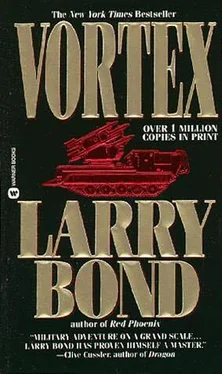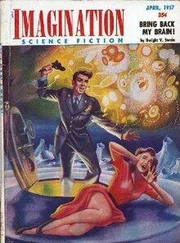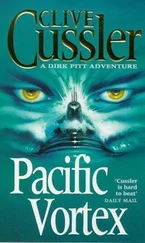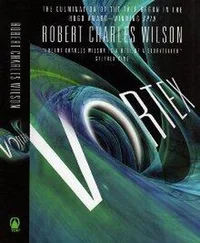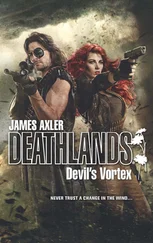“Relations between the world’s democracies and South Africa are already under tremendous strain owing to Pretoria’s invasion of Namibia and its brutal re imposition of total apartheid at home. Confirmation that the nation’s current president, Karl Vorster, knew beforehand of the ANC’s plans to attack his predecessor and did nothing to thwart them would surely call into question the very legitimacy of South Africa’s existing government.
“Official pokes men in Pretoria have so far maintained a tight-lipped silence, refusing all comment on what they label ‘communist-inspired propaganda.”
“
The announcer’s voice shifted down a notch. “in other news from Africa,
Cuba’s President Fidel Castro announced the dispatch of an additional motorized infantry division to Namibia. Castro made the announcement in the midst of a three-hour speech to Cuba’s Communist Party Youth Congress, claiming that the additional soldiers would enable his forces there to crush South Africa’s invasion army in a ‘final battle of liberation.”
“Western military sources confirm that Cuba’s expeditionary force does appear to be preparing for a renewed offensive against South African troops holding positions along the southern edge of the Auas
Mountains-barely forty kilometers from the Namibian capital of Windhoek. .”
OCTOBER 31-- CNN HEADLINE NEWS
Four days after it first aired, the furor generated by Ian Sheffield’s story showed no sign of fading away. Events in south em Africa continued to dominate newspaper front pages and TV nightly newscasts. CNN’s half-hourly news recap was no exception.
As the computer-generated graphics signaling the start of the broadcast disappeared, the screen split, its upper right hand corner showing a stylized map of South Africa, while the rest showed CNN’s glittering, hightech
Atlanta studio and the familiar, grave face of its daytime anchor.
“In the news at the top of the hour, the German government has just announced that its ambassador to South Africa is being recalled ‘for consultation s’-bringing to eight the number of major powers that have withdrawn their senior diplomatic representatives from Pretoria. Several more European nations, including France and the Netherlands, have actually broken all ties with the Vorster government and are closing their embassies completely.
“Western governments may hope this latest round of diplomatic saber Tattling will encourage their citizens living and working inside South
Africa to leave before the situation grows any more violent. If that’s the case, it may already be too late.”
The map of South Africa expanded to fill the entire screen.
“Despite a total foreign-press blackout, there are persistent reports of rioting in
Cape Town, Port Elizabeth, Durban, and several other cities. An accurate casualty count seems impossible to obtain, but key members of the country’s fragmented political opposition claim that hundreds have been killed by police and security units in just the past three or four days.”
Red stars sprouted on the map, highlighting each mentioned location.
South Africa looked hemmed in, its entire coastline a sea of bright-red trouble spots surrounding a seemingly placid white interior.
The camera cut back to show the anchor’s somber face and a file photo of
Ian Sheffield.
“In related news, the story filed by American newsman Ian
Sheffield, now believed to be in hiding somewhere in South Africa, has been partially corroborated both by sources inside the ANC and inside the
South African security forces. CNN has also learned that U.S. government officials have been given copies of the documents -presumably so that they can be authenticated.
“In Pretoria, the Vorster government continues to refuse to comment on the claim that it allowed the ANC’s attack on the Blue Train to go forward without interference. And though black opposition groups have long campaigned against Vorster, sketchy reports of growing dissatisfaction seem to indicate that white opinion inside South Africa is finally turning against the regime-including many of the far-right groups ordinarily thought to be a source of political strength for the current government.
A picture of a scowling Karl Vorster took shape over the anchor’s left shoulder.
“President Vorster is scheduled to address his nation at eleven
A.m. Eastern time tomorrow. CNN will, of course, carry that speech live,”
Vorster’s picture vanished, replaced by a drawing of a gold bar surmounted by an arrow rising at a steep angle.
“South
Africa’s worsening political, military, and economic crisis continues to send shivers through the world financial community. Gold closed today on the
New York exchange at near six hundred dollars an ounce, and the price is expected to continue rising tomorrow. The gold price rise parallels similar price increases affecting all other strategic minerals exported by South
Africa. We’ll have more details on what that could mean for the average consumer in Dollars and Sense, later in this half hour.
“In domestic news, police in San Francisco refused to speculate on whether a bomb found near the Federal Building there this morning had any connection with a recent series of attacks blamed on radical environmental groups .. ….
NOVEMBER I -JOHANNESBURG
Ian, Emily, and Matthew Sibena sat uncomfortably close together on a small sofa facing a black-and-white television set. Even with all the drapes drawn, the lateafternoon sun turned the tiny, one-bedroom apartment into a sweltering hotbox.
Ian wiped the sweat off his forehead and resisted the temptation to complain about the heat and the lack of working air-conditioning. He suspected that the same adage that applied to gift-horse dentures applied to borrowed apartments-especially for those on the run from the police.
They’d been lucky enough that Emily’s reporter friend and reluctant Army reservist, Brian Pakenham, had agreed to lend her a key to his flat without asking too many inconvenient questions.
Lucky indeed. Ian didn’t doubt that police guard posts now ringed his apartment, the network studios, and probably the American embassy in
Pretoria. And he was quite sure that his picture had been distributed to every roadblock and checkpoint on the roads leading out of Johannesburg. No
South African police commander was going to let the foreigner who’d so insulted his president escape his dragnet.
But after being cooped up for nearly ninety-six hours straight, Ian was almost ready to take his chances out on
Johannesburg’s crowded streets and empty highways. Almost anything seemed better than staying here in sticky, fearful ignorance. He shook his head wryly at the suicidal thought and tried to concentrate instead on the halting English translation of Karl Vorster’s harsh, grating Afrikaans phrases. Maybe he could piece together some idea of what was going on in the world outside South Africa.
“.. . I know that my words will reach not only my fellow South Africans, but many others throughout the world as well. I welcome this opportunity to speak to those outsiders, those foreigners, who have had so much to do with the crisis we face. “
The camera pulled back from its close-up of Vorster’s strong, square-jawed face-backing away until it showed him standing proudly in front of a huge blue-, white-, and orange striped South African flag.
“Many of these small-minded outsiders have opposed our struggle to build a South Africa on our own terms. They have opposed our fight against the
Marxists and terrorists bent on pulling us down into shame and degradation. They do not understand the conditions we face here in South
Читать дальше
